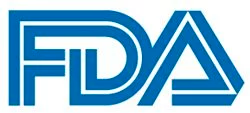FDA Approves ctDx FIRST as Liquid Biopsy Companion Diagnostic Test for Adagrasib in Advanced NSCLC
The FDA has issued an accelerated approval for the Agilent Resolution ctDx FIRST assay for plasma as a companion diagnostic for adagrasib.

The FDA has issued an accelerated approval for the Agilent Resolution ctDx FIRST assay for plasma as a companion diagnostic for adagrasib (Krazati).1 Adagrasib is indicated for adults with KRAS G12C–mutated locally advanced or metastatic non–small cell lung cancer (NSCLC) who have received at least 1 prior systemic therapy.
The ctDx FIRST assay is the first next-generation liquid biopsy to win FDA approval as a companion diagnostic for adagrasib. ctDx FIRST detects genomic alterations in plasma circulating tumor DNA. Additionally, the liquid biopsy delivers a significantly faster turn-around time, potentially allowing physicians to expedite treatment decisions.
The FDA has also approved the assay for tumor profiling of the EGFR gene for use in accordance with professional guidelines for treating NSCLC and simultaneously approved the QIAGEN therascreen KRAS RGQ PCR kit for tissue. The FDA advises physicians to use the tumor test if the plasma assay does not detect a mutation.2
“Expanding access to accurate and fast genomic profiling is an essential step to unlocking important medicines for patients in desperate need,” Kenna Anderes, Mirati’s vice president of translational medicine and companion diagnostics, said in a press release. Agilent and Mirati co-developed adagrasib and its companion assays.
The approval was based on results from the multicenter, single-arm, open-label KRYSTAL-1 trial (NCT03785249), in which adagrasib, a RAS GTPase family inhibitor, elicited an objective response rate (ORR) of 43% (95% CI, 34%-53%) and a median duration of response (DOR) of 8.5 months (95% CI, 6.2-13.8) in patients with locally advanced or metastatic KRAS G12C–mutant NSCLC.
Efficacy was evaluated in 112 patients who had progressive disease on or following platinum-based chemotherapy and an immune checkpoint inhibitor that was administered either concurrently or sequentially. Adagrasib was given at 600 mg orally twice daily until disease progression or unacceptable toxicity.
Regarding safety, the most common adverse effects occurring in at least 20% of patients were diarrhea, nausea, fatigue, vomiting, musculoskeletal pain, hepatotoxicity, renal impairment, dyspnea, edema, decreased appetite, cough, pneumonia, dizziness, constipation, abdominal pain, and QTc interval prolongation.
The most common laboratory abnormalities occurring in at least 25% of patients were decreased lymphocytes, increased aspartate aminotransferase, decreased sodium, decreased hemoglobin, increased creatinine, decreased albumin, increased alanine aminotransferase, increased lipase, decreased platelets, decreased magnesium, and decreased potassium.
References
- Agilent resolution ctDx FIRST receives FDA approval as a liquid biopsy companion diagnostic test for advanced non-small cell lung cancer. News release. Agilent. December 12, 2022. Accessed December 14, 2022. https://bit.ly/3Pp05M7
- FDA grants accelerated approval to adagrasib for KRAS G12C-mutated NSCLC. News release. FDA. December 12, 2022. Accessed December 14, 2022. https://bit.ly/3WdCKPs

%201%20(1)%20copy.jpg?fit=crop&auto=format)

